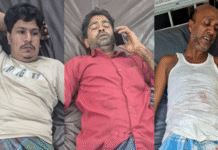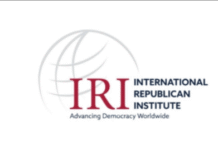‘Civil society betraying people by remaining silent’
 People are being lynched to death on suspicion of being child abductors. Women and children are being raped and killed. Unrest reigns on the campuses. There is a sense of insecurity all over, but the state has failed to take effective measures. Professor of mass communication and journalism at Dhaka University, Geeti Ara Nasreen, in an interview with Prothom Alo, talks about the prevailing situation in the country.
People are being lynched to death on suspicion of being child abductors. Women and children are being raped and killed. Unrest reigns on the campuses. There is a sense of insecurity all over, but the state has failed to take effective measures. Professor of mass communication and journalism at Dhaka University, Geeti Ara Nasreen, in an interview with Prothom Alo, talks about the prevailing situation in the country.Prothom Alo: People are being lynched to death based on mere rumours of being child abductors. Why is this happening?
Geeti Ara Nasreen: People being killed on suspicion of being abductors is just another aspect of the overall crimes and killings that are taking place. Random killings are taking place all over the country. There is killing after rape, murder due to business rivalry, political vengeance killings, bloggers being murdered and so on.
People are killing each other over mere arguments. People are killed in road accidents. The safe road movement has been stopped, but people are still being killed in road accidents. Now train accidents are snatching away lives too. Such killings are becoming normal occurrences in everyday life.
Prothom Alo: Is there no security?
Geeti Ara Nasreen: Obviously not. We live in an alarming place. There is no one to save anyone in danger. There are motivated murders and oppression. Weak people are pounced upon in anger. People were killed in mob beatings before the Taslima killing in Badda and afterwards too. This lawlessness can only be resolved by restoring security in public life, by a law to protect public life.
Prothom Alo: On one hand people are taking the law into their own hands, and on the other hand there are the extrajudicial killings.
Geeti Ara Nasreen: In both these cases, there is the presence of killings and the absence of justice. Both types of killings create panic. The main reasons are, lack of justice in unnatural deaths, and lack of confidence that there will be justice for unnatural deaths. This sense of security has created an all-encompassing sense of alarm. Common people feel there is no one to protect them.
Prothom Alo: Why has this situation emerged?
Geeti Ara Nasreen: Such a situation can emerge when the state does not look after the interests of the people, but tends to the interests of vested groups, and when it is not accountable to the people. We have often seen responsible persons in the government or the administration making insensitive or irresponsible statements at crucial times. They sometimes simply await the prime minister’s directives. They even have to be instructed to stop rumours.
We have so many educational institutions. There is the media. There are government offices at the thana level. Yes despite all these, no concerted efforts are being taken up for crisis management. As a result, the positive initiatives taken up within the society are gradually crumbling.
Prothom Alo: A sense of insecurity prevails on campus and outside too. How do you see this, as an educationist?
Geeti Ara Nasreen: The campus is a part of the overall society. Universities are places for intellectual and cultural growth. Free thought is to be nurtured there in a free environment. That is how it should be. But rather than cultivating knowledge and empowerment, we are busy running after posts and positions and flexing our power.
Many students come to university and face all sorts of repression rather than an environment conducive to their studies. They are forced to join meetings and processions of a particular party in order to get a place in the residential halls. They see that ‘might is right’, rather than democracy.
Teachers are no longer role models. The teachers who are committed to research, to educating the students, are not rewarded for their devotion. They are scorned. Dhaka University’s professor ABM Faruk was threatened by the concerned ministry for his research work related to public interest. A teacher of the English department at Chattogram’s University of Science and Technology, Masud Mahmud, was doused in kerosene because he refused to permit certain irregular students from taking exams.
Prothom Alo: Power politics played a role in the killing of Nusrat Jahan in Feni and Rifat Sharif in Barguna. And in the Barguna incident, now Aysha Siddika is being brought to the forefront.
Geeti Ara Nasreen: Where the rights of the people in general are not upheld, women and weaker people invariably are the target of attacks. When a woman is attacked, she is the one blamed. In Feni, Nusrat protested against sexual harassment and sought justice. But she was the one burned to death as punishment. Investigations showed that it was not only the madrasa principal who was involved in the incident, but many several other local influential persons too.
In the Barguna incident, Nayan Bond and his people openly hacked Rifat to death in broad daylight. Rifat’s wife Ayesha Siddika tried to prevent them. But now Nayan Bond has been killed in ‘crossfire’ and attempts are on to blame Ayesha Siddika in her husband’s murder. A video made up from pornographic content was also released online. Who released this video and why was the girl not given any lawyer? Barguna’s incident shows how vile society can be in its behaviour towards women.
Prothom Alo: The rape and killing of women and children has taken on epidemic proportions yet nothing is being done to prevent this.
Geeti Ara Nasreen: No matter how bad it may sound, we have to face the fact that we have established a culture of rape. Rape is being condoned by society and if the victim is blamed, the rape is justified.
The social media and religious sermons are rife with misogyny. Women are projected as mere sexual commodities in advertisements, cinema, pornography, and all over. This promotes the propensity towards rape.
Above all, the failure to try and punish the rapists, and the tendency to blame the victim, is the cause for rape to become an epidemic. Many see rape as a form of control, an expression of power and dominance.
Prothom Alo: Civil society will have to come forward, as in the past, if the state fails to take effective action against such injustice.
Geeti Ara Nasreen: The common people’s voices are suppressed, they are struggling for survival. People often lose the courage to protest due to repressive laws and harassment. But those in favourable positions of society, those who have the chance to speak out, must come forward. If they do not do so, civil society will be betraying the country and the people by remaining silent.
Prothom Alo: So is there no hope?
Geeti Ara Nasreen: People can go a long way if they have dreams within, if they aspire for a good future. It was that dream and aspiration that drove the people in 1971 to win a bloody war for independence. But it is evident that those hopes have been dashed to the ground and that is why there is a steady exodus of youth from the country.
It is most unfortunate that people want to flee from the country. I am not talking about those who want to live in comfort in their second homes abroad. It is about those who want to remain in their own homeland despite all odds. They are now leaving the country. But there are still young men and women who dream, who are striving for change. They are our hope.
Prothom Alo: Can you openly speak out what is in your mind?
Geeti Ara Nasreen: Not always. There is a sort of self-censorship at work. You have to think twice about what to say, how it will be construed, and what reaction there will be. We are living in a time of fear, alarm and mistrust. I do not think that those who founded this country had ever imagined such an environment would prevail here.
Prothom Alo: Thank you.
Geeti Ara Nasreen: Thank you.
*This interview, originally published in Prothom Alo print edition, has been rewritten in English by Ayesha Kabir.









